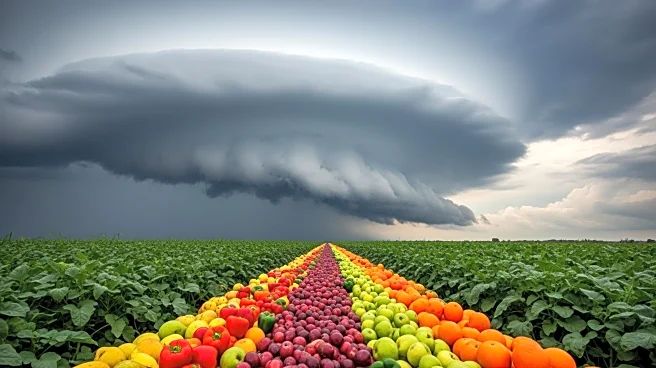What's Happening?
The 30th United Nations Climate Change Conference (COP30) in Belém, Brazil, is focusing on the urgent need to address climate extremes affecting global food yields. The Food and Agriculture Organization
(FAO) is emphasizing the importance of integrating agriculture and food security into climate negotiations. Climate change is already disrupting food production, with unpredictable weather and increased pests impacting yields. The FAO is advocating for sustainable agrifood systems as central to climate action, highlighting the need for increased climate finance and support for farmers and rural communities.
Why It's Important?
The impact of climate extremes on food yields is a critical issue for global food security and nutrition. As climate change continues to affect agricultural productivity, millions of people face the risk of hunger and malnutrition. The discussions at COP30 are vital for shaping policies that support sustainable agriculture and mitigate climate impacts. The focus on agrifood systems is essential for achieving the Paris Agreement goals and ensuring resilience against climate-related challenges. The outcomes of COP30 could influence international efforts to address food security and climate adaptation.
Beyond the Headlines
The integration of traditional knowledge and practices, such as those of Indigenous Peoples, into climate strategies is a key aspect of COP30. These approaches offer valuable insights for building resilience and adapting to climate change. The conference also highlights the need for systemic changes in climate finance, directing more resources towards agrifood systems. The emphasis on sustainable agriculture reflects a broader shift towards holistic climate action, recognizing the interconnectedness of environmental, social, and economic factors.










